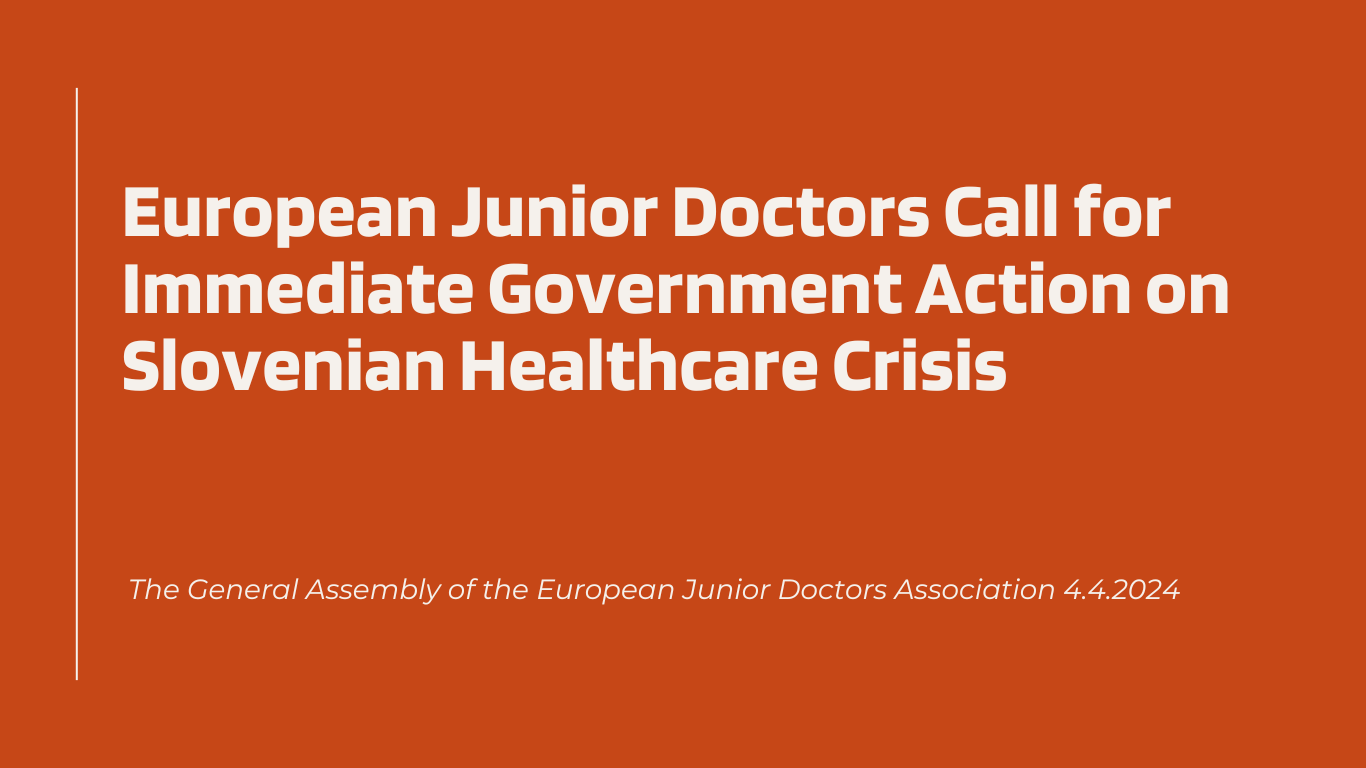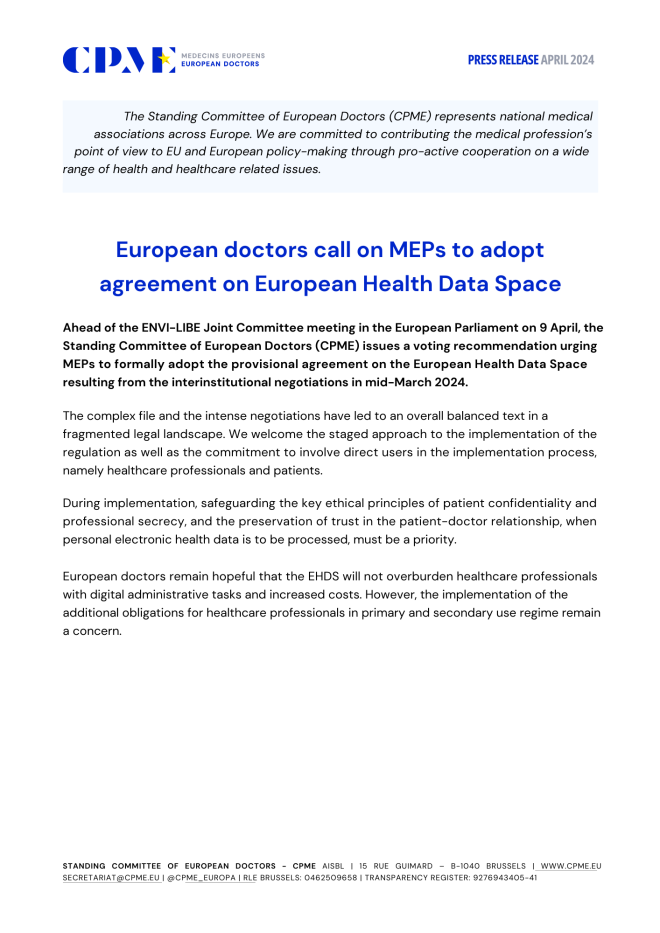EHDS passed in European Parliament

This week the European Parliament Plenary voted in favour of the European Health Data Space political provisional agreement. CPME issued a press release welcoming the adoption.
Ahead of the European Parliament vote at the Committee level, CPME had issued a press release calling on MEPs to adopt the text.
EJD has already been supportive of the EHDS in our e-Health policy. You can read the whole policy here.
Read part of our e-Health policy:
EU guidelines and regulations focused on equity and safety in adopting digital technologies at the EU level.
A more unified approach to implementing digital health solutions, better exchange of current knowledge and expertise, and support for the countries and institutions to adopt currently leading solutions are needed to reduce the existing inequalities in digital maturity, use of technology, financing of developing of new technologies and digital literacy between EU countries.
While the success of the implementation of digital technology is determined at the local or national level, we support current initiatives and efforts of EU institutions to introduce regulations for digital technologies in healthcare in Europe. The European Health Data Space (EHDS) and AI Act are timely efforts to introduce regulations and rules to protect patients' rights and accelerate further research and innovations by strengthening data quality rules, transparency, interoperability and accountability. However, despite the aims of the European Health Data Space (EHDS) and AI Act to regulate technology, several areas remain to be improved. Firstly, new requirements and implementation should not exacerbate already high and constantly increasing healthcare costs. Secondly, new requirements must reflect the needs of medical professionals and patients and not create further obstacles or compromise time for doctor-patient relationships and cooperation. Regulation should provide clear standards and interoperability and ensure that only high-quality data is used to provide a safe and high standard of care. Furthermore, only
certified and evaluated digital applications and medical devices that comply with CE marking or ISO standards (e.g. ISO/TS 82304-2 on Health and wellness apps – Quality and reliability) should be used in clinical practice and integrated into hospital information systems to ensure trust and better adoption of technology across medical professionals and patients in Europe
You might also enjoy
-

EJD Calls for Immediate Government Action on Slovenian Healthcare Crisis
The General Assembly of the European Junior Doctors Association stands in solidarity with its Slovenian colleagues who are currently mobilising for the improvement of the healthcare systemand better working conditions.
-

EHDS passed in European Parliament
Digital Health: European Health Data Space
-

Reminder to apply for UEMS Representative!
Deadline for applying is 1.5.

